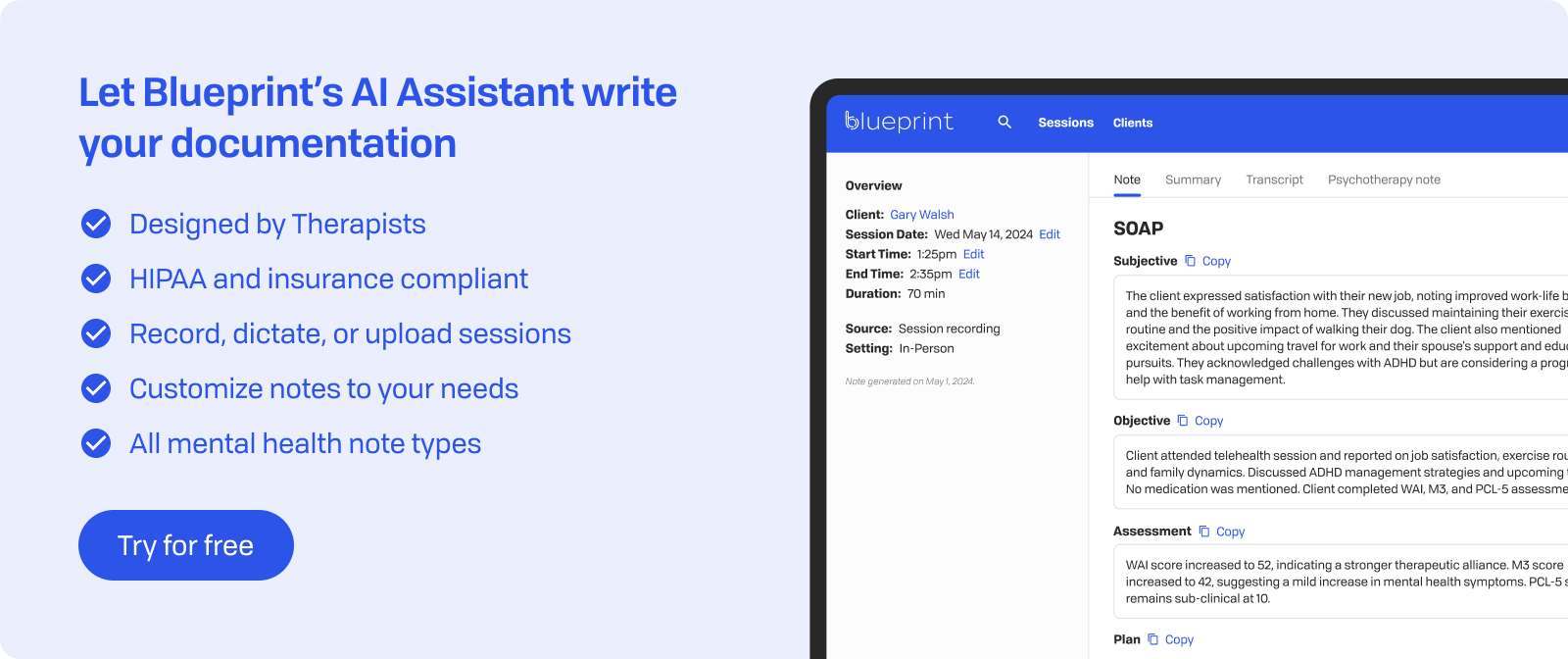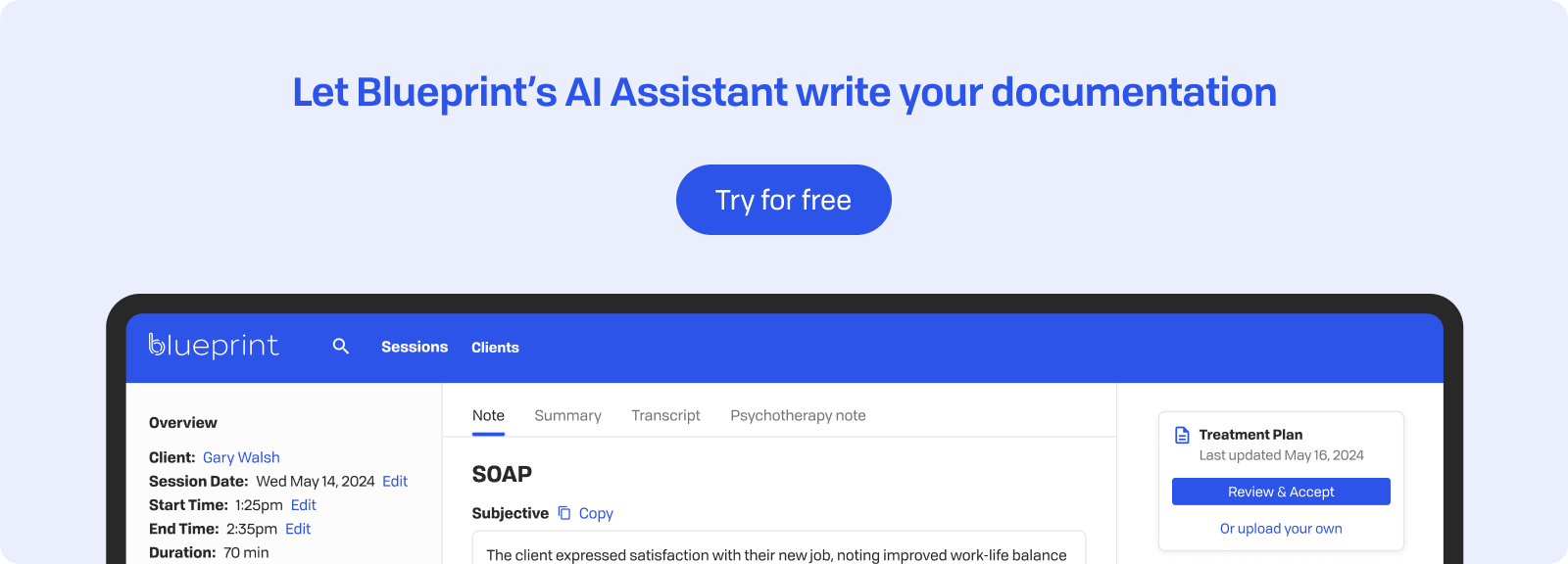In Brief
Choosing a mental health licensure path can feel overwhelming when you're planning your career. Each credential opens unique opportunities and shapes how you'll work with clients in meaningful ways. These paths differ in more than just the letters after your name.
Aspiring therapists often consider two common licenses: LPC and LMFT. Both prepare you to provide therapy and support clients through life's challenges, but they differ in training focus and practice approach. Knowing these differences early saves years of uncertainty and helps align your education with your professional goals.
In this overview of LPC versus LMFT licensure, we'll explain the key differences in training and practice. We'll look at their client focuses, typical work environments, and career paths. Whether you're starting graduate school or considering a career change, these details can inform your decision.
Terms and Definitions
LPC (Licensed Professional Counselor): A licensed mental health professional with a master's degree in counseling or a related field. LPCs diagnose and treat a wide range of mental health concerns across diverse populations. They work with individuals, groups, and sometimes families on issues like depression, anxiety, trauma, and life transitions. Their training emphasizes individual psychopathology, human development, and evidence-based therapeutic interventions.
LMFT (Licensed Marriage and Family Therapist): A licensed clinician specializing in relational and systemic therapy approaches. LMFTs focus on treating couples, families, and individuals within relationship contexts. Their training highlights how family systems, communication patterns, and relational dynamics influence mental health. They view problems through a systemic lens, considering how relationships and interactions contribute to psychological symptoms.
Key Difference in Framework: The main distinction lies in their therapeutic lens and training focus. LPCs typically address mental health from an individual perspective, examining personal history, cognition, and behavior. LMFTs analyze clients through a systems perspective, looking at relationships and family dynamics that create and maintain problems. While LPCs may work with families, their training doesn't center on systemic interventions like LMFT programs do. Likewise, LMFTs often see individuals, but they do so through the lens of their relational and systemic contexts.

Education and Training Paths
The educational journey for LPCs and LMFTs shares common ground but takes different directions in important areas. Both paths need a master's degree with about 60 semester credit hours, supervised clinical experience, and passing a state licensure exam.
LPC Educational Requirements:
- Master's degree in counseling or related field: Programs generally require 60 semester units covering core counseling skills.
- Core coursework includes: Human growth and development, counseling theories and techniques, group counseling, career development, assessment and diagnosis, research methods, and professional ethics.
- Clinical training: At least 700 clock hours and 280 hours of supervised direct service during practicum and internship..
- Post-graduation requirements: 2,000-4,000 hours of supervised clinical experience required for professional licensure (varies by state).
LMFT Educational Requirements:
- Master's degree in marriage and family therapy: Specialized programs focusing on relational and systemic approaches.
- Specialized coursework emphasizes: Family systems theory, couples therapy techniques, intergenerational family dynamics, systemic assessment, and relational ethics.
- Clinical training: Practicum and internship specifically working with couples and families.
- Post-graduation requirements: Similar supervised hour requirements, but must include substantial couples and family therapy experience for state licensure.
Both paths lead to state licensure exams—the National Counselor Examination (NCE) or National Clinical Mental Health Counseling Examination (NCMHCE) for LPCs, and the Association of Marital and Family Therapy Regulatory Boards (AMFTRB) exam for LMFTs. State boards review applications, verify supervised hours, and grant licensure once all requirements are met.
Client Focus and Treatment Approach
LPCs and LMFTs differ significantly in how they understand and address client concerns. This key difference influences everything from assessment methods to intervention strategies.
LPC Client Focus:
- Individual-centered approach: LPCs primarily engage in one-on-one sessions with clients, exploring personal history, thought patterns, and behaviors that contribute to distress.
- Broad mental health issues: They address depression, anxiety, trauma, substance use, grief, life transitions, and adjustment difficulties.
- Common modalities: They often use Cognitive Behavioral Therapy (CBT), Dialectical Behavior Therapy (DBT), trauma-informed approaches, solution-focused therapy, and motivational interviewing.
- Group work: Many LPCs lead therapy groups focused on specific issues like addiction recovery, grief support, or anxiety management.
LMFT Client Focus:
- Systems-based approach: LMFTs view issues through the context of relationships and family dynamics, examining how interaction patterns create or maintain symptoms.
- Relational concerns: They deal with communication breakdowns, conflict patterns, attachment issues, parenting challenges, infidelity, and family transitions.
- Specialized modalities: They use Emotionally Focused Therapy (EFT), Gottman Method, structural family therapy, Bowenian therapy, and narrative approaches.
- Multi-client sessions: They often conduct sessions with multiple family members or both partners present.
While both professionals aim to reduce symptoms and improve functioning, their intervention strategies reflect these different orientations. An LPC treating depression might explore individual thought patterns and coping skills, while an LMFT might examine how family communication patterns contribute to the client's symptoms. Neither approach is better; they simply offer different pathways to healing depending on whether the focus is on individual psychology or relational dynamics.

Practice Settings and Environments
The work environments available to LPCs and LMFTs reflect their different training focuses and client populations. While there's significant overlap in some settings, each license provides access to specific workplace opportunities.
LPC Practice Settings:
- Schools and educational institutions: Counseling centers from elementary through university levels, addressing academic stress, behavioral issues, and developmental concerns
- Healthcare facilities: Hospitals, integrated behavioral health clinics, and rehabilitation centers working alongside medical teams
- Crisis and emergency services: Psychiatric emergency rooms, crisis hotlines, and mobile crisis response teams
- Correctional facilities: Prisons, juvenile detention centers, and court-mandated treatment programs
- Community agencies: Nonprofit organizations, vocational rehabilitation centers, and employee assistance programs
- Private practice: Solo or group practices serving diverse individual and group therapy needs
LMFT Practice Settings:
- Private practice: Often the primary setting, offering flexibility to schedule couples and family sessions
- Family service agencies: Organizations specifically focused on strengthening family relationships and parenting support
- Residential treatment centers: Working with families during reunification or supporting family involvement in treatment
- Community mental health centers: Providing accessible couples and family therapy services
- Healthcare settings: Some hospitals and clinics, particularly in family medicine or pediatric departments
LPCs often find more diverse employment options, particularly in institutional settings that require individual crisis intervention or mandated treatment. LMFTs tend to choose environments that support their relational focus, where scheduling multiple family members and conducting longer sessions is feasible. Private practice remains popular for both licenses, offering the freedom to design their clinical practice around their specialization.

Career Outlook and Compensation
The mental health field is experiencing significant growth, with both LPC and LMFT positions expanding much faster than average occupations. The Bureau of Labor Statistics anticipates 18% growth for marriage and family therapists and 22% growth for mental health counselors through 2032. This increase reflects greater awareness of mental health needs and broader insurance coverage for therapy services.
Salary Comparisons:
- National averages: According to data from the Bureau of Labor Statistics, the median annual wage for both LPCs and LMFTs is highly comparable, generally falling in the range of $50,000 to $65,000.
- Top earners: Both licenses can exceed $100,000 in private practice with established client bases.
Key Factors Affecting Compensation:
- Geographic location: Metropolitan areas and states with higher costs of living offer 20-40% higher salaries.
- Practice setting: Private practice typically provides the highest earnings for both licenses.
- Experience level: Each year of experience can increase earning potential by 3-5%.
- Specialization: Expertise in areas like trauma, addiction, or sex therapy can command higher rates.
LPCs working in hospitals or government positions often receive comprehensive benefits packages that offset slightly lower base salaries. LMFTs in family-centered agencies may earn less initially but gain valuable specialized experience. Private practice remains the most lucrative option for both licenses, though it requires business skills and time to build a sustainable client base.
Regional differences lead to significant salary variations—therapists in California, New York, and Hawaii consistently earn 15-30% above national averages, while rural areas typically offer lower compensation but face less competition.
Choosing Between LMFT and LPC
Making this career decision involves honest reflection about your therapeutic interests and the type of clinical work that energizes you. Think about these key factors when deciding between these two paths:
Choose LPC if you:
- Desire a broad and versatile scope of practice: You're eager to work with diverse individuals across the lifespan and want the flexibility to work in a variety of settings, including schools, hospitals, agencies, or correctional facilities..
- Focus on individual psychology: You're interested in exploring personal history, thought patterns, and individual behavior change.
- Seek broader career options: You want access to positions in crisis intervention, substance abuse treatment, or institutional settings.
Choose LMFT if you:
- Feel passionate about relationships: You find fulfillment in helping couples communicate better and families heal together.
- Think systemically: You naturally see how family patterns and relationship dynamics create individual symptoms.
- Want specialized expertise: You prefer focusing on couples and family therapy rather than being a generalist.
- Enjoy complex dynamics: You're comfortable managing multiple perspectives in the therapy room.
Your therapeutic orientation plays a significant role. If you lean toward cognitive-behavioral approaches and individual assessment tools, LPC training aligns with these preferences. If systemic theories and relational interventions attract you, LMFT programs offer deeper training in these areas.
Consider shadowing professionals in both fields or volunteering in settings that serve your populations of interest. The right choice becomes clearer when you experience the daily realities of each profession firsthand.

Key Takeaways
Knowing the core differences between LPC and LMFT licensure helps clarify which path aligns with your professional goals and therapeutic interests.
LPCs as Generalist Practitioners:
- Versatile clinical training: Prepared to work with various populations across the lifespan, from children to older adults
- Broad treatment scope: Address individual mental health concerns including anxiety, depression, trauma, addiction, and life transitions
- Multiple work settings: Qualify for positions in schools, hospitals, agencies, private practice, and crisis intervention
- Evidence-based focus: Training emphasizes research-backed interventions like CBT, DBT, and trauma-informed care
LMFTs as Relationship Specialists:
- Systems-focused expertise: Specialized training in couple and family dynamics, communication patterns, and relational healing
- Targeted client work: Excel at addressing relationship conflicts, family transitions, parenting challenges, and attachment issues
- Unique therapeutic lens: View individual symptoms within the context of relationships and family systems
- Specialized interventions: Master approaches like Emotionally Focused Therapy and structural family therapy
Career Considerations:
- Growing demand: Both fields show strong job growth projections through 2032, exceeding most other occupations
- Comparable compensation: Salary ranges overlap significantly, with earnings influenced more by location, setting, and experience than license type
- Rigorous requirements: Each path demands master's-level education, extensive supervised clinical hours, and state licensure exams
- Meaningful impact: Both licenses enable you to create lasting change in clients' lives through evidence-based therapeutic work
Your choice ultimately depends on whether you're drawn to individual-focused mental health treatment or passionate about healing through relationships and family systems.











